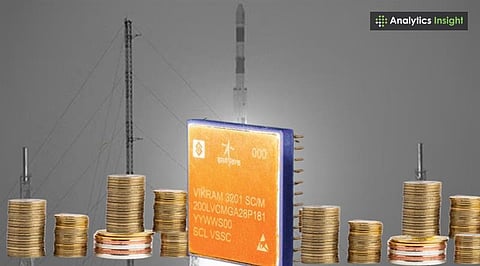

What’s New Today: India’s ISRO introduces Vikram-32, a 32-bit processor engineered for space missions, offering high reliability, efficiency, and extreme condition endurance.
Fast-Track Insights: GLHF secures $2.3M funding to scale Gigaverse, enhancing open-world gameplay with PvE, PvP, and community-driven features in crypto gaming.
Here’s a quick rundown of the biggest tech headlines making waves today. Let's dive into the day's top tech stories, from ISRO introducing Vikram-32, powering future space missions, to Healthcare, technology, and clean energy shaping future jobs.
Union Minister Ashwini Vaishnaw unveiled Vikram-32, India’s first indigenously developed 32-bit processor, at Semicon India 2025. Built by ISRO’s Semiconductor Laboratory, Chandigarh, it succeeds the VIKRAM160 series and is tailored for space missions. Operating at 100 MHz with low power consumption, the chip withstands -55ºC to 125ºC, supports 152 instructions, and integrates dual 1553B bus interfaces, ensuring reliability in space environments.
GLHF Secures $2.3M for Gigaverse Expansion
GLHF, a crypto-native game studio, raised $2.3 million to expand its flagship title, Gigaverse. Backed by 1confirmation and notable crypto investors, the funding supports new features, open-world growth, and PvE/PvP modes. Gigaverse has attracted 75,000 paid users, generating $4.5 million in revenue and $9 million in peer-to-peer trades. Founded by Dith and Garnish, GLHF emphasizes community-driven gaming, transparency, ownership, and collaborative growth within the young crypto gaming market.
The US Bureau of Labor Statistics projects 5.2 million new jobs by 2034, with healthcare, technology, and renewable energy leading growth. Nurse practitioners, physician assistants, and physical therapist assistants dominate healthcare expansion, while data scientists and information security analysts highlight AI-driven opportunities. Clean energy careers, such as wind turbine technicians and solar installers, are experiencing rapid growth. Despite automation-driven job losses, specialized skills and human judgment remain central to the evolving workforce.
Artificial Intelligence transforms forex trading by enhancing accuracy, reducing emotional bias, and enabling automation. AI strategies identify patterns, test against historical data, and adjust positions, minimizing human error. Machine learning improves forecasts by adapting to market volatility and geopolitical shifts. Automated systems execute trades within seconds, manage multiple currency pairs, and track sentiment. Combining AI-driven insights with human intelligence allows traders to make smarter, faster, and more profitable decisions.
The U.S. Federal Reserve will host a Payments Innovation Conference on October 21, focusing on stablecoins, tokenization, AI, and decentralized finance. With $230 billion in stablecoins circulating globally, the event highlights their growing role in payments. The summit follows Congress passing the first stablecoin law and the Fed scaling back specialized crypto oversight. Policymakers aim to strike a balance between innovation and stability as they examine stablecoin business models and the potential impact of blockchain on traditional finance.
